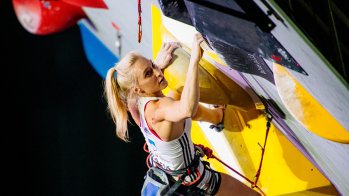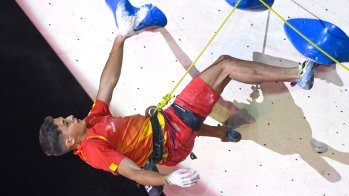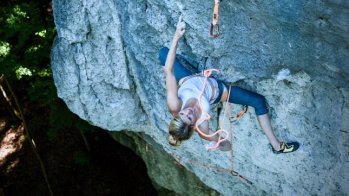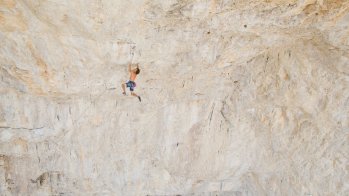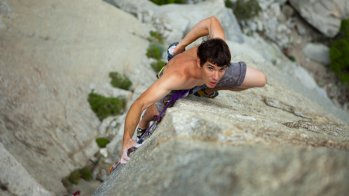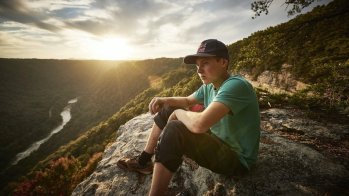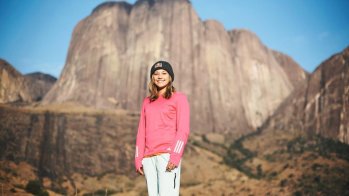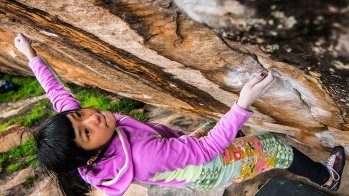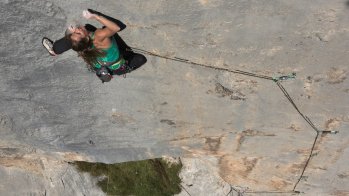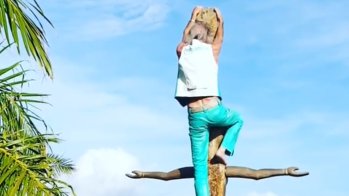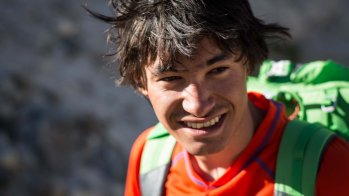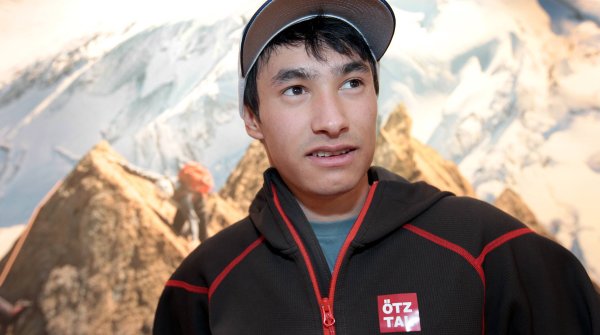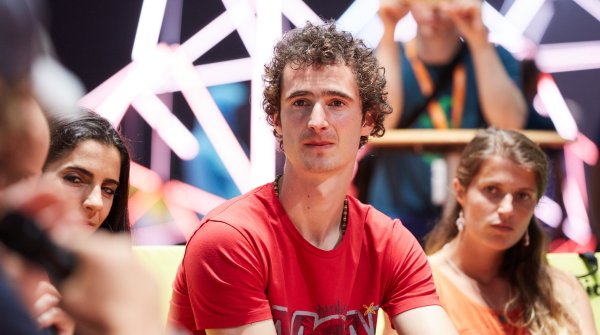
Marco Scolaris is relieved during his lecture in the Indoor Climbing Hub: another stage finish in the Causa Olympia has been reached. On 25 June, at the 134th meeting of the International Olympic Committee (IOC) in Lausanne, the sports of surfing, skateboarding breakdancing and climbing were accepted for the Summer Games in Paris 2024.
All these disciplines are now in the so-called observation period - a final decision on the whereabouts of the four sports will be made by the IOC in December 2020. With regard to sport climbing, this means for the IFSC that the Olympic Combine, as a climbing discipline, must run smoothly in Tokyo 2020.
A mammoth task, as Scolaris never gets tired of mentioning during his 30-minute lecture: "It depends on the results in Tokyo,if they are supportive, we can breathe a sigh of relief".
Scolaris does not come to OutDoor by ISPO empty-handed. He proudly presents the climbing wall for the Olympic Combine in Tokyo 2020 to the public for the first time. A very surprising world premiere without aforementioned introduction, as Christian Popien, initiator of the Indoor Climbing Hub, notes after the lecture. A fact which illustrates the biggest problem of the IFSC in connection with the Olympics: communication.
"We missed the opportunity to inform the climbing community sufficiently about developments regarding participation in the Olympic Games," explains Scolaris frankly. He knows that there is still much room for improvement, but that's also why he went to Munich. A first step which, according to him, must be followed by many more.
The tasks for the coming months are manifold, communication is one of them. Another, which will ultimately decide whether to remain in the Paris 2024 programme: Successful (climbing) Olympics in Asia! The IFSC must succeed in designing the much criticized Olympic Combine in Japan in the best possible way, both from the athletes' and the IOC's point of view.
Adam Ondra, Alex Honnold and Co: These Are the World's Strongest Climbers
Scolaris outlines the many difficulties on the way to Japan. The climbing contest will be held on one of a total of 17 days of Olympic Summer Games. There's a medal for a climbing compromise called Olympic Combine.
The climbers share the area with the basketball players. What Scolaris is happy about, though, is that the basketball players, according to him, are cooperative and have an open ear for the worries and wishes of the Olympic novices. But how it works on site and how well the athletes were able to prepare for the climbing triathlon is a journey into the unknown. However, failure is out of the question for Scolaris.
The path to establishing climbing at the Olympic Games was long - in fact, it took 28 years, from the first demonstration competition at the Olympic Games in Albertville in 1992 to Tokyo 2020.
Especially the still fresh positive program decision of the IOC for Paris 2024 has a Turbo Boost effect on the thoroughbred climber Scolaris. And so Scolaris also reacts confidently to listener questions, such as those about the route builders for Tokyo, combined with the question of who gets the post of chief route setter.
Scolaris: "At the end of this year we will decide these important personnel issues. Ultimately, it also depends on who qualifies for Tokyo 2020." That's all he wants to say at this point.
During his lecture, Scolaris repeatedly makes it clear that "theoretically, we can still get kicked out". Out of the program, out of Olympia. For some critics, that sounds like music in their ears. However, Scolaris offers solid arguments in favour of a permanent inclusion in the Olympic Games programme: "Although only 8,300 spectators can watch the Olympic Combine in Tokyo, do not forget: the Olympic Games are watched by 2.3 billion people on their TV sets.
A chance for sport, a chance for athletes and finally also a chance for the Olympics to spice up with new young sports and to make it more modern.
Moreover, the Olympic Combine would be off the table again in Paris in 2024 anyway, because the sports climbing format proposed in Lausanne would provide for a combined bouldering and lead event as well as a separate speed climbing event. In other words, two medals and a significantly larger number of athletes who could realize their dream of the Olympics.
- Awards
- Mountain sports
- Bike
- Fitness
- Health
- ISPO Munich
- Running
- Brands
- Sustainability
- Olympia
- OutDoor
- Promotion
- Sports Business
- Textrends
- Triathlon
- Water sports
- Winter sports
- eSports
- SportsTech
- OutDoor by ISPO
- Heroes
- Transformation
- Sport Fashion
- Urban Culture
- Challenges of a CEO
- Trade fairs
- Sports
- Find the Balance
- Product reviews
- Newsletter Exclusive Area
- Magazine

